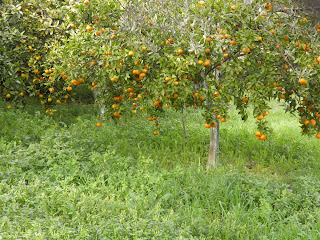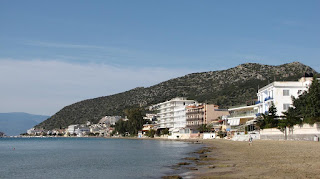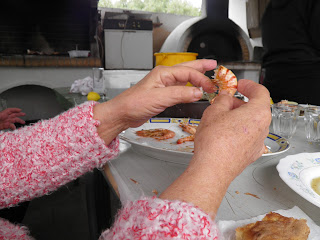Poros island
Jewel of the Saronic gulf
One hour south of the port of Pireaus (Athens) by hydrofoil, 2 1/2 hours by road from Athens International airport. Separated by a 200 metre channel from mainland Peloponese.
Population around 4,000
Consists of two islands. Spharia is the site of the picturesque harbour with layers of blue and white houses tumbling down its volcanic slopes towards the main town. Kalavria is the bigger island, covered in pines with tourist beaches around its coast and the ancient Temple to the sea god Poseidon on its heights.
Looking back towards the town
The deep blue channel between the mainland (on the left) and the island and its fishing boats on the right
Piles of fishing nets along the quay

The flotilla is in
A typical kaïki waiting for early morn and a trip to the fishing grounds
Our 'supermarket'. The hotel above has been condemned. We shop at our own risk
A deserted waterfront on an overcast winter's day
The old National Bank of Greece, now privately owned and restored. Next door is the big church of the Evangelist, both just metres from the harbour waters
Monastery beach in mid winter, In mid summer the beach is covered in browning bodies and cars are packed in under the trees
All these photos were taken by my long time friend, Irish lass Therese. Therese lived on the island for donkeys years, another local alien. She now lives on Crete but comes back regularly to catch up with friends. She walks the roads and alleys of Poros and Galatas (across the water) with Catherine and dog Bella photographing the island she still loves.



























































.JPG)



























